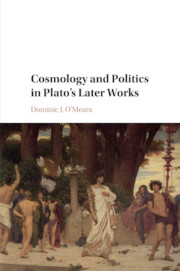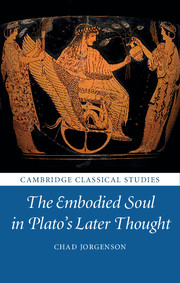Cosmology and Politics in Plato's Later Works
Knowledge of the structure of the cosmos, Plato suggests, is important in organizing a human community which aims at happiness. This book investigates this theme in Plato's later works, the Timaeus, Statesman, and Laws. Dominic J. O'Meara proposes fresh readings of these texts, starting from the religious festivals and technical and artistic skills in the context of which Plato elaborates his cosmological and political theories, for example the Greek architect's use of models as applied by Plato in describing the making of the world. O'Meara gives an account of the model of which Plato's world is an image; of the mathematics used in producing the world; and of the relation between the cosmic model and the political science and legislation involved in designing a model state in the Laws. Non-specialist scholars and students will be able to access and profit from the book.
- Investigates, for the first time, Plato's views on the relation between cosmic structure and human happiness
- Makes the arguments and interpretations accessible to non-specialists as well as specialists
Product details
November 2017Adobe eBook Reader
9781316873731
0 pages
0kg
This ISBN is for an eBook version which is distributed on our behalf by a third party.
Table of Contents
- Prologue: the future of the past in Plato's work
- Part I. The World of Timaeus:
- 1. A feast for the Goddess
- 2. The world-maker
- 3. The model of the world
- 4. The beauty of the world
- Interlude
- Part II. The City of the Statesman and the Laws:
- 5. The Statesman: a new robe for the Goddess?
- 6. The legislators of the Laws
- 7. The order of the city of the Laws and its model
- Epilogue.



